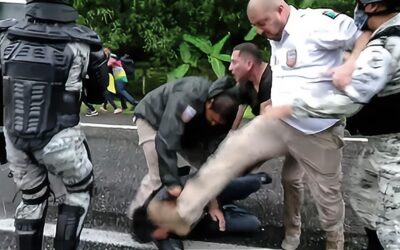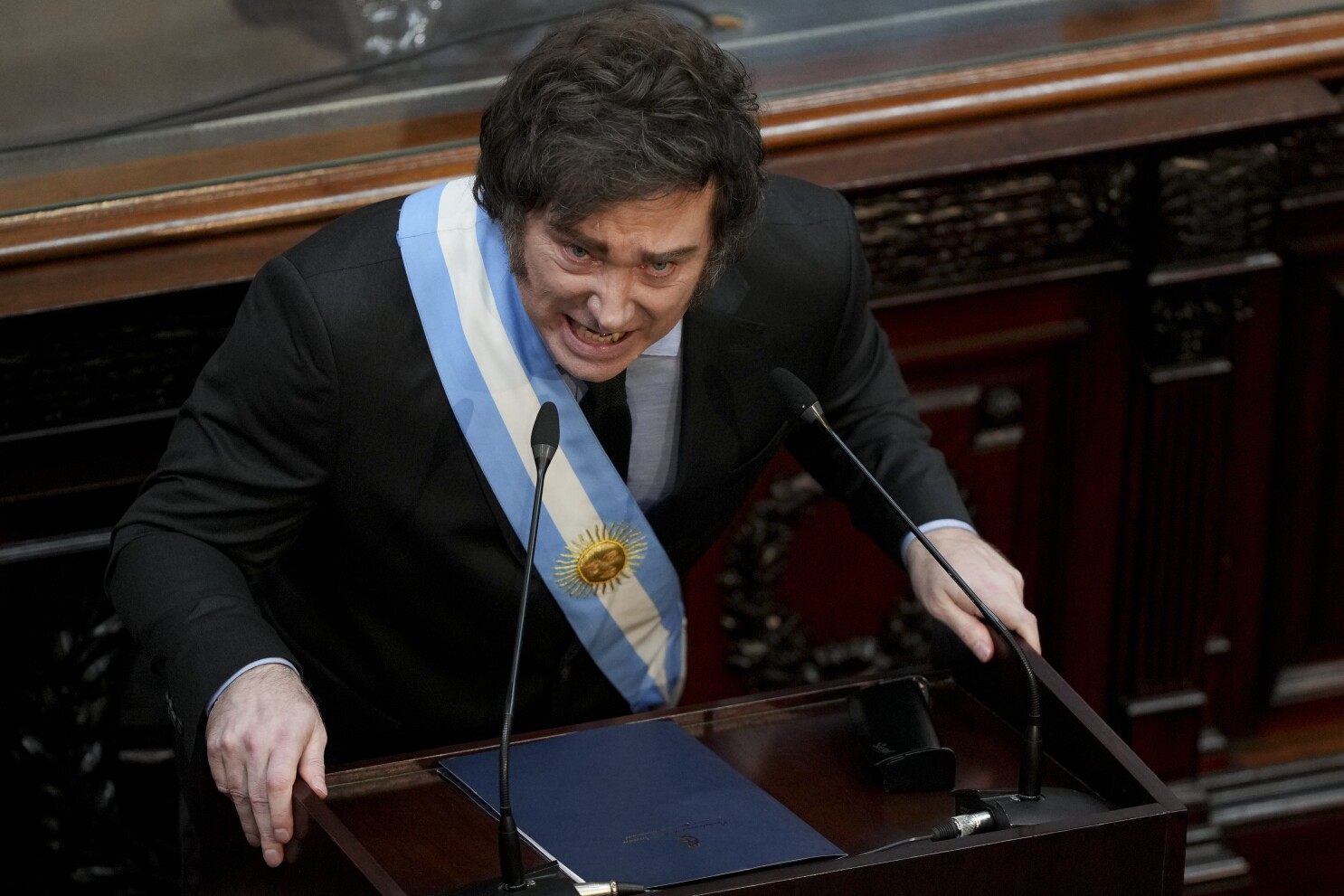 It’s a well-known scene throughout the world: migrant families marching in the streets to demand their rights and seek a better life are brutally repressed by state forces. Police wield billy clubs to attack men, women and children and enforce the message migrants and refugees have heard everywhere: “You are not welcome here”.
It’s a well-known scene throughout the world: migrant families marching in the streets to demand their rights and seek a better life are brutally repressed by state forces. Police wield billy clubs to attack men, women and children and enforce the message migrants and refugees have heard everywhere: “You are not welcome here”.
But this time it happened in Mexico, under a government that has promised to be governed by human rights, compassion and sovereignty. The videos of the Aug. 28, 2021 operation by the National Migration Institute with the National Guard against a caravan of migrants, mostly Haitians, on the Tapachula-Arriaga highway caused indignation and rage. They show National Guardsmen dressed in riot gear, pushing a Haitian man with his child in his arms and hitting another while his young son tries to save him. Another agent kicks a migrant man in the head as he lays helpless on the ground. The scenes captured on video are but a small part of the violence against the migrant caravan–many people are reported injured in acts that were not recorded.
Despite the bad image of Mexico generated by the brutality exposed on Aug. 28, two days later, the Migration and the Guard launched another operation against the group in Mapastepec, resulting in more people injured and detained. This video shows a hunt, people scattering, screams, men subjected to force and crying babies.
The High Commission for Human Rights and Refugee Rights of the United Nations, and the International Organization for Migration issued a message calling on the Mexican government to “respect the human rights of migrants” and demanding “the implementation of immediate measures of prevention, non-repetition and accountability” following the “deeply worrying” acts.
The Center for Human Dignification A.C. confirmed more than 500 detainees in the Huixtla Immigration Detention Center. Human rights organizations report that they have limited access to the centers and that there are people detained and in deportation proceedings who have already filed for asylum.
In the last three years, 13,972 Haitians have applied for refuge in Mexico, according to data from the Mexican Commission for Refugee Assistance (COMAR), with a notable increase in recent months. They arrive fleeing a country that has suffered a political crisis since the assassination of President Jovenel Moise on July 7, followed by a strong earthquake on August 14 that left more than 2,200 dead, 120,000 families displaced and 12,000 people injured. In addition, the country carries with it a history of US interventions, corruption, poverty and looting.
More than 340 US organizations sent a letter to President Biden, demanding that Haitian deportation flights cease and that Haitians who are eligible for temporary protected status return. The situation in Haiti certainly merits a humanitarian immigration status, like Afghanistan. However, the Mexican government received Afghan refugees, but does not seem to listen to the requests of the Haitians. New operations against the caravan continue to be reported, in which a component of racism is evident.
As a consequence of the violence against migrants, or probably because it became public, two members of the National Immigration Institute were fired for excessive use of force. It is necessary to investigate and punish individuals who commit human rights violations against migrants. However, human rights groups that monitor the rights of migrants report violation so constant that it seems to stem from a structural cause, the result of a policy that prioritizes containment over the internationally established rights and the Mexican Constitution. The containment policy, imported from the United States, treats “migrant flows” as if they were a leak in the roof that must be covered, and not as they are: people with faces, hearts and dreams.
The Pastoral Office for Human Mobility called for “immigration regularization, as well as respecting the right to free transit contained in article 11 of our Magna Carta.” A constant requirement has been to increase the budget to expand the refugee services office’s capacity and speed up requests. The backlon of people waiting for paperwork – without housing, without employment, without medicines, practically without the basic necessities to live – is a terrible dilemma not only for migrant families, but also for society, which cannot take measures to integrate them in an orderly and sensitive manner.
After last week’s operations, the president met with security forces in the south to outline a strategy to limit the excessive use of force. He also announced that he is writing a letter to Biden asking for his cooperation with “Sembrando Vida,” a tree-planting program in southern Mexico to offer jobs to migrants who enter through the southern border.
These measures will not be able to reduce the violence, due to the contradictions inherent in Mexican immigration policy. The militarization of borders, and mass detention and deportation continue. In addition, the Mexican government indicated that Mexico accepted the reestablishment of the program that violates human rights known as “Stay in Mexico”, imposed on Mexico by the economic blackmail of Donald Trump.
The program returns asylum seekers in the US to Mexico to await their hearings. It is an illegal program whose sole motive is to make asylum seekers suffer. Mexico did not have to accept it – in violation of its own laws – the first time Trump imposed it, let alone the second time. President Biden suspended the program on his first day in office and it was the conservative court with new members appointed by Trump, who reinstated it. The ball is now in the court of the Mexican government, and so are the lives of thousands of vulnerable migrants who face threats in border cities and in their countries of origin.
In his third State of the Union address on September 1, AMLO boasted that Mexican migrants in the US sent a record amount of remittances to the country, thus cushioning the impact of the recession related to COVID-19. He stated that thanks to them and social programs “it has been possible to avoid the lack of food and other essential goods.” It is not coherent to praise the migrants who left the country in search of better conditions, most of them due to the lack of options, and to criminalize those who enter with the same intention.
Mexico has a historic opportunity to be an example of respect for human mobility and receive people who leave their homes in search of safety. While the López Obrador government declares a break with the authoritarian past, advances against corruption and privatization, and focuses on vulnerable sectors, it urgently needs a policy of dignity and a practice of respect on the migration issue. The National Immigration and the National Guard are violating human rights and the fundamental principles of the Fourth Transformation. Midway through his administration, Mexico’s president should rectify the course.
Laura Carlsen is director of the Americas Program of the Center for International Policy in Mexico City at www.americas.org.



